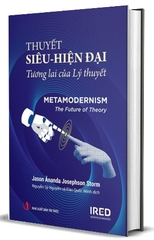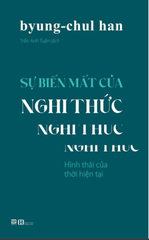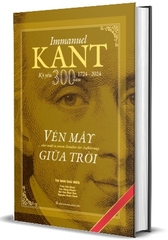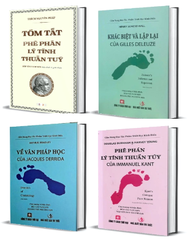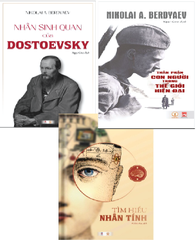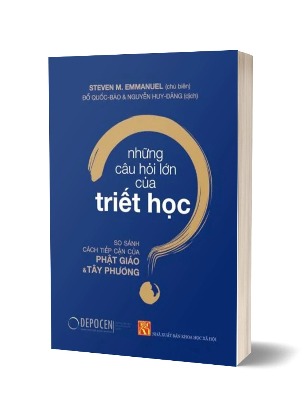
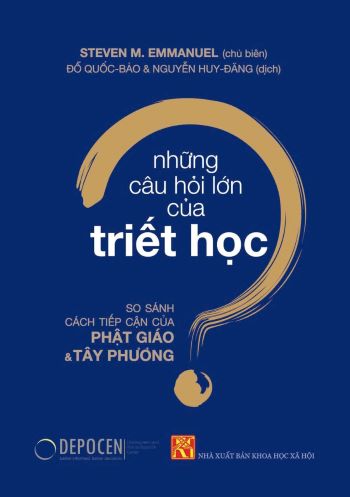
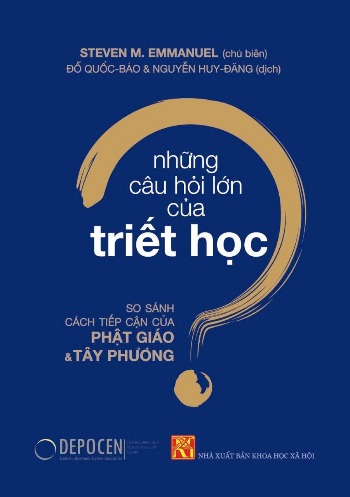
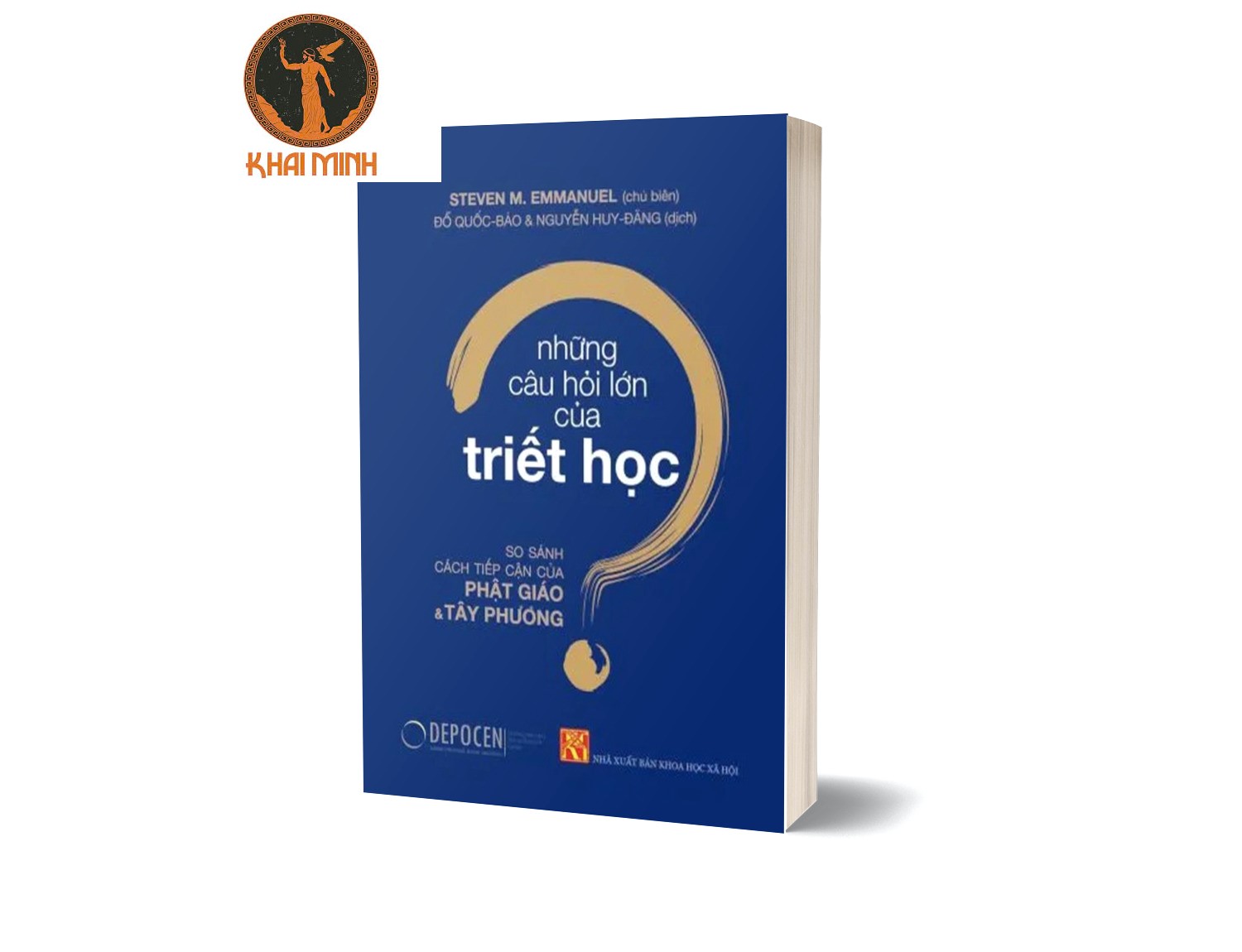




Những câu hỏi lớn của triết học (So sánh cách tiếp cận của Phật giáo và Tây phương) - Steven M. Emmanuel
Tác giả: Steven M. Emmanuel
Dịch giả: Đỗ Quốc-Bảo và Nguyễn Huy-Đăng
Khổ sách: 14,5 x 20,5 cm
Số trang: 366 trang
Những câu hỏi lớn của triết học (So sánh cách tiếp cận của Phật giáo và Tây phương) - Steven M. Emmanuel
Đây là một tài liệu tham khảo rất có giá trị vì so sánh cách tiếp cận của Phật giáo và Tây phương cho những ‘câu hỏi lớn của triết học.’ Mỗi người, bất luận có quan tâm đến triết học hay không, có lẽ cũng sẽ đều cảm nhận được trọng lượng và ý nghĩa của những câu hỏi lớn này khi chúng được nhắc đến. Dù những vấn đề được đặt ra đã rất rõ ràng và dễ hiểu, song để giải đáp được chúng lại đòi hỏi ở độc giả một nền tảng kiến thức và hệ thống phương pháp tư duy khoa học vững chắc. Cuốn sách này, tuy đề cập đến những chủ đề rất hấp dẫn và có vẻ đại chúng, vẫn là một công trình khoa học được đóng góp bởi nhiều chuyên gia học giả trong các phân nhánh khác nhau của triết học Phật giáo và Tây phương. Khác với những cuốn sách dẫn nhập hay nhập môn, những tư tưởng và khái niệm triết học không chỉ đơn thuần được giới thiệu và giải thích, mà sẽ được áp dụng và phát triển một cách đa dạng và tinh vi để giải quyết những vấn đề hóc búa được đặt ra.
(Đỗ Quốc-Bảo & Nguyễn Huy-Đăng, "Những câu hỏi lớn của Triết học)
.....
English version
Foreword, by Leah Kalmanson
Acknowledgments
List of Abbreviations
Editor’s Introduction, by Steven M. Emmanuel
1. How Should We Live? Happiness, Human Flourishing, and the Good Human Life, by Stephen J. Laumakis
2. What Is Knowledge? Knowledge in the Context of Buddhist Thought, by Douglas Duckworth
3. Does Reality Have a Ground? Madhyamaka and Nonfoundationalism, by Jan Westerhoff
4. Can Consciousness Be Explained? Buddhist Idealism and the “Hard Problem” in Philosophy of Mind, by Dan Arnold
5. Is Anything We Do Really Up to Us? Western and Buddhist Philosophical Perspectives on Free Will, by Rick Repetti
6. Why Do Bad Things Happen to Good People? “And None of Us Deserving the Cruelty or the Grace”—Buddhism and the Problem of Evil, by Amber D. Carpenter
7. How Much Is Enough? Greed, Prosperity, and the Economic Problem of Happiness—a Comparative Perspective, by Steven M. Emmanuel
8. What Do We Owe Future Generations? Compassion and Future Generations—a Buddhist Contribution to an Ethics of Global Interdependence, by Peter D. Hershock
Concluding Remarks, by Steven M. Emmanuel
For Further Reading and Study
Contributors
Index
Introduction
Certain questions have recurred throughout the history of philosophy. They are the big questions—about happiness and the good life, the limits of knowledge, the ultimate structure of reality, the nature of consciousness, the relation between causality and free will, the pervasiveness of suffering, and the conditions for a just and flourishing society—that thinkers in different cultures across the ages have formulated in their own terms in an attempt to make sense of their lives and the world around them.
The essays in this book turn to the major figures and texts of the Buddhist tradition in order to expand and enrich our thinking on these enduring questions. Examining them from a comparative and cross-cultural perspective demonstrates the value of alternative ways of addressing philosophical problems, showing how different approaches can produce new and unexpected kinds of questions and answers. Engaging with the Buddhist tradition, this book shows, helps return philosophy to its practical as well as theoretical aim: not only understanding the world but also knowing how to live in it.
Featuring striking and generative comparisons of Buddhist and Western thought, Philosophy’s Big Questions challenges our thinking in fundamental ways and offers readers new conceptual tools, methods, and insights for the pursuit of a good and happy life.
About the Author
Steven M. Emmanuel is professor of philosophy and dean of the Susan S. Goode School of Arts and Humanities at Virginia Wesleyan University. He is the editor of Buddhist Philosophy: A Comparative Approach (2018) and A Companion to Buddhist Philosophy (2013), as well as many publications on major figures in the modern European tradition.
Review
What is philosophy? An accurate response to this question should incorporate and embrace non-Western philosophy. For teachers looking to broaden the canon, Steven Emmanuel’s Philosophy’s Big Questions provides an excellent, accessible, intercultural introduction to philosophy. Topically arranged, each chapter fully integrates, without assimilating, Western and Buddhist sources.
David Cummiskey, author of Kantian Consequentialism
Interest in Buddhist philosophy has grown exponentially in recent years. These essays demonstrate that Buddhist philosophy has significant contributions to make in the major areas of philosophical inquiry. From foundational topics in metaphysics, epistemology, and ethics to more focused philosophical issues pertaining to mind, religion, and morality, they insightfully explore important questions of perennial concern in Western as well as Buddhist traditions.
Christopher W. Gowans, author of Buddhist Moral Philosophy: An Introduction
Philosophy's Big Questions redefines comparative philosophy for the undergraduate classroom by providing a fresh exploration of the perennial questions of philosophy in light of the contributions Buddhism can make to these conversations. The eight thematic essays—expertly crafted by foremost scholars—offer a broad and accessible introduction to philosophy that easily puts to rest any doubts about the value of comparative philosophy.
John J. Holder, editor and translator of Early Buddhist Discourses
Our big questions are above all human questions about the things that matter most—happiness, relationships, fairness, or the mystery of mind itself. This brilliant volume provides a rich array of Buddhist responses to such questions. It breaks new ground in placing the creativity of time-honored Buddhist thinkers in conversation with, but not secondary to, western-formulated questions on free will, evil, or the power of compassion. Each chapter expands the territory over which our own reflections can roam. I can't wait to share this profoundly relevant work with colleagues, students, and friends, and to reflect on it myself amid the plentiful conundrums of daily life.
Anne Carolyn Klein, author of Meeting the Great Bliss Queen: Buddhists, Feminists, and the Art of the Self
This is a wonderful book, and it would be a great text for a course on cross-cultural philosophy. The articles are all well-written and do an outstanding job of identifying 'big questions' that have concerned Asian and Western philosophers. The responses to these questions and the approaches taken are distant enough to provide genuine space for dialogue, and close enough that each can learn from the other. This is just the kind of book we need to move forward with truly global philosophy.
John Powers, author of A Bull of A Man: Images of Masculinity, Sex, and the Body in Indian Buddhism
Philosophy's Big Questions makes the case that by exploring multiple traditions we can understand our questions and views differently, opening up new possibilities of thought and imagination, and new ways of understanding the practice of philosophy itself. The contributors to this volume include some of the most significant scholars in Buddhist philosophy writing today. The chapters are excellent, and their approach will be relevant and accessible to students.
William Edelglass, Barre Center for Buddhist Studies and Emerson College
Anyone with any abiding interest in Buddhist philosophy or cross-cultural philosophy, or anyone who teaches courses on such things, should find Philosophy's Big Questions a welcome volume with which to probe the contours of Buddhist philosophical premises and positions.
Reading Religion
A remarkable work of scholarship.
East Asian Journal of Popular Culture
This collection of essays comes with great value not only for specialists but also for students who want to learn how to do philosophy cross-culturally.
Philosophy East and West
Philosophy should be a practice that generates the wisdom to acknowledge one’s boundaries and aspire to go beyond them in the pursuit of happiness. This superb collection does exactly this.
Religious Studies Review

Bước 1: Truy cập website và lựa chọn sản phẩm cần mua để mua hàng
Bước 2: Click và sản phẩm muốn mua, màn hình hiển thị ra pop up với các lựa chọn sau
Nếu bạn muốn tiếp tục mua hàng: Bấm vào phần tiếp tục mua hàng để lựa chọn thêm sản phẩm vào giỏ hàng
Nếu bạn muốn xem giỏ hàng để cập nhật sản phẩm: Bấm vào xem giỏ hàng
Nếu bạn muốn đặt hàng và thanh toán cho sản phẩm này vui lòng bấm vào: Đặt hàng và thanh toán
Bước 3: Lựa chọn thông tin tài khoản thanh toán
Nếu bạn đã có tài khoản vui lòng nhập thông tin tên đăng nhập là email và mật khẩu vào mục đã có tài khoản trên hệ thống
Nếu bạn chưa có tài khoản và muốn đăng ký tài khoản vui lòng điền các thông tin cá nhân để tiếp tục đăng ký tài khoản. Khi có tài khoản bạn sẽ dễ dàng theo dõi được đơn hàng của mình
Nếu bạn muốn mua hàng mà không cần tài khoản vui lòng nhấp chuột vào mục đặt hàng không cần tài khoản
Bước 4: Điền các thông tin của bạn để nhận đơn hàng, lựa chọn hình thức thanh toán và vận chuyển cho đơn hàng của mình
Bước 5: Xem lại thông tin đặt hàng, điền chú thích và gửi đơn hàng
Sau khi nhận được đơn hàng bạn gửi chúng tôi sẽ liên hệ bằng cách gọi điện lại để xác nhận lại đơn hàng và địa chỉ của bạn.
Trân trọng cảm ơn.








